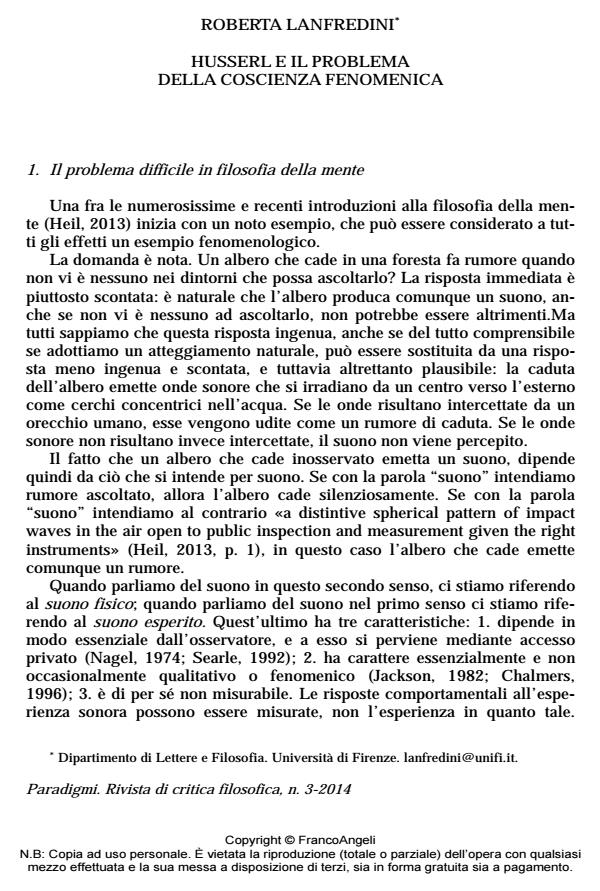Husserl and the Problem of the Phenomenal Consciousness
Journal title PARADIGMI
Author/s Roberta Lanfredini
Publishing Year 2015 Issue 2014/3
Language Italian Pages 18 P. 55-72 File size 84 KB
DOI 10.3280/PARA2014-003005
DOI is like a bar code for intellectual property: to have more infomation
click here
Below, you can see the article first page
If you want to buy this article in PDF format, you can do it, following the instructions to buy download credits

FrancoAngeli is member of Publishers International Linking Association, Inc (PILA), a not-for-profit association which run the CrossRef service enabling links to and from online scholarly content.
The hard problem of the philosophy of mind - i.e. the problem of internal phenomenal content of perception (qualia) - is still considered, for the most, unsolvable. This paper deals with a phenomenological analysis of the main problems linked with the puzzling qualia problem. These problems are: i) the relationship between intentional mind and consciousness, ii) the epistemological and ontological reductionism, iii) the anti-reductionist naturalism, iiii) the eliminativism, iiiii) the embodied and ecological mind. The paper main conclusion is that phenomenology is different mainly from a methological point of view, adopting a horizontal and integrated model in place of a vertical and dichotomic one.
Keywords: Qualia, consciousness, intentionality, reductionism, embodied mind, integrated model.
Roberta Lanfredini, Husserl e il problema della coscienza fenomenica in "PARADIGMI" 3/2014, pp 55-72, DOI: 10.3280/PARA2014-003005